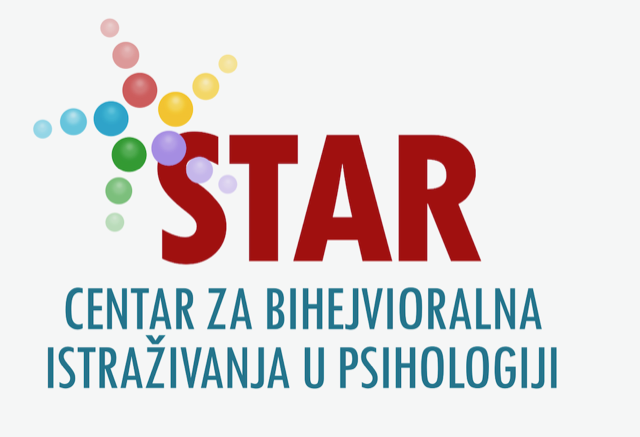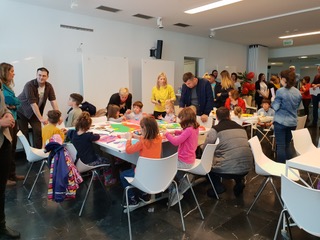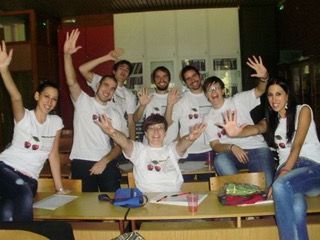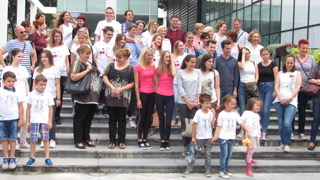[RRI Good Practice] Citizen Science in a Twin Study in Serbia
What is the good practice about?
STAR organized online citizen science webinars from Dec 1st, 2020 to June 20th, 2021, aimed to raise awareness of the importance of a twin study in Serbia. Citizen volunteers were educated about the citizen science approach, principles of open science, and the importance of behavioural genetics, and they were introduced to various methodological approaches in the exploration of psychological phenomena in a twin study. They actively participated in the designing of research problems and measures, collecting the data, and disseminating the results. They expanded their knowledge, enhanced their competencies to conduct research, and they benefited from the participation in the generation of scientific knowledge.
STAR, the Faculty of Philosophy, Ministry of Education, Science and Technological Development (as a funder of the creation of the Twin Registry in Serbia), and other organizations which collaborate with STAR, benefited from this practice in several ways. First, this practice enabled to reach more twins in the study which, in turn, resulted in more reliable and valid data to achieve excellence. The outcomes are visible in publishing the results of the twin study in top scientific journals in the field.
Second, information was collected about which scientific topics people are interested in, which served as a basis for the next initiative, the GENIUS project, funded by the Science Fund of the Republic of Serbia, which started this year.
Third, this practice contributes to the rising awareness among citizens about genetic and environmental interplay in the explanation of various functional and dysfunctional behaviours and adaptation styles. There was a large number of visitors to online public events in which citizen-scientists and psychology students presented their topics in behavioural genetics.
Finally, this practice contributed to the better visibility of the STAR and its partners, which could be seen through the increased number of followers on social networks and interest in joining the twin study.
Why is this initiative needed?
Twin studies were often misunderstood outside the scientific context. For example, there is a widespread belief that twins communicate by telepathy. Thus, with citizen science webinars we wanted to raise awareness of the importance and use of twins to investigate genetic and environmental influences of various psychological phenomena, as well as to educate citizen- volunteers about misconceptions regarding twins and twin studies. An additional goal was to build a citizen science network that could help in reaching the twins to participate in a twin study in Serbia, in order to achieve the large sample needed for making reliable and valid conclusions.
What are the main objectives and activities?
The main objective of involving citizen-volunteers in twin study could be understood in two ways. First, the practice of open science is aimed at the active participation of citizens in the process of research, to spread, acquire and upgrade knowledge related to current scientific topics. Consequently, the activities arising from this goal are embodied in the active thinking of topics of interest to the general public, then in the promotion of research, as well as in analyzing the obtained results and understanding how the results can be incorporated into everyday life to improve the mental health of the population and the manifestation of the full capacity of individuals. For these reasons, webinars in which citizen-volunteers participate abound in educational topics related to twin research, but at the same time in discussions on the possibilities of implementing research results into the daily lives of individuals.
Activities related to this goal are designed through several iterations of lectures and discussions on the topic of behavioural genetics and methodology of psychological research, and then through the individual activity of citizens to explore topics of interest to them in the context of this area, and it is expected that these activities will live at the micro-level, spilling over into both the meso-level and the macro-level of the environment in which individuals spread awareness of the importance of examining twins.
Second, webinar activities also aimed at reaching participants throw the citizens-volunteers and citizen science network, to collect a large sample and consequently reliable conclusions from the research results.
Third, this approach could contribute to the better visibility of the importance of the results of the twin study to the stakeholders. Incorporating scientific activities and participation in the everyday life of community members contributes to the gain the trust in science as well as to the stakeholder's aim at the improvement of the lives of the population in general. In this part, the webinars are aimed at examining and researching topics by citizen-volunteers, and at their public presentation at events that support the incorporation of open science practice among citizens.
Who is involved?
Citizens themselves, as users of webinar activities, are involved in the research process from the very beginning. In the first place, their participation is relatively active, given that most of the citizens are not educated in the field of twin studies and applications of their results. In the initial process, the activities of citizens-volunteers were caused primarily by their intrinsic motives to learn more about the topic itself, as well as the possibilities of their participation in the very beginning of the examination of the twins. Over time, gaining knowledge and responsibility towards engaging in science and adhering to the code of ethics of scientific research in the field of psychology, citizens-volunteers are involved in the process of devising phenomena that would be practical to examine through this research design. The ultimate goal of such activities is to enable citizens-volunteers to independently promote activities, but also to organize mini-forums at the local level, spreading awareness of what the goals are and the applicability of the results of twin studies. Thus, from the relatively active participation of volunteers at the very beginning of the webinar, the ultimate goal is to reach educated citizens who understand, expand and potentially conduct research in this area under our supervision in accordance with their possibilities and responsibilities.
On the other hand, stakeholders are usually indirectly informed about webinar activities, most often through the media/social networks or citizens themselves who are often in contact with stakeholders. The ultimate goal of involving stakeholders in this process is embodied in the final activities, where they are presented by citizens-volunteers current events and the applicability of twin study results in practice, in various domains of activities by stakeholders. Starting from the assumption that stakeholders invest in the life quality of all citizens, as well as aimed at expressing the full potential of individuals, webinar activities aimed at directing the course of stakeholders' thinking towards improving people's quality of life in general, making relevant decisions by experts in stakeholders' area of activity.
For example, STAR Center signed the agreement with OPENS (European Youth Capital Novi Sad), a stakeholder which encourages the participation of young people in the local community, and OPENS recognizes the importance of open science and citizen science and supports our activities, and helps in spreading our ideas, aims, and usefulness of our results for improvement of life quality among all citizens.




Can this good practice be replicated?
The citizen science webinars could be transferred to any scientific field, and that is the strongest side of this type of activity. The webinars were in the local language (Serbian-Croatian-Bosnian) and involved young researchers and citizens that are interested in scientific topics and methods. To the best of the team's knowledge, webinar activities in the context of behavioral genetics have not yet been conducted in the West Balkan region, although research from certain countries (e.g., Croatia) also conducts a twin study. Therefore, this type of activity is very applicable in the surrounding countries such as Bosnia and Herzegovina, Croatia, and Montenegro. This expands the impact of these activities, which can contribute to cross-cultural research in the field, but also raises awareness of the importance of citizen participation and decision-makers in the research process that can improve the quality of life, especially in the context of environmental factors.
However, there are a few tips and traps during the activity that needs to be addressed. When it comes to tips, it is necessary to empower citizens-volunteers in the sense that their questions are relevant to scientific research, and that they have complete freedom in proposing topics they would like to know more about. In that way, the passivation of citizens-volunteers is prevented, but at the same time, they are introduced into the process of thinking that science is there to be open, close to people, and to help them lead a better and better life in accordance with their needs. On the other hand, the trap is reflected in the fact that not all citizens are educated in the field of scientific research methodology, so it is necessary to sporadically emphasize what is the domain of science, and what is the domain of unscientific and extra-scientific reasoning. In this way, citizens are empowered to find scientific arguments for their questions, with an emphasis on the applicability of results on environmental and genetic factors that can unequivocally improve their quality of life.
More information about the necessary resources are available and contacts with the project promoters can be established in case of interest.
Webinars were organized online, thus accounts on some online platform is needed for hosts as well as an account without restriction for time and number of participants in the case when public presentations were organized. In line with open science practice, the webinars were free of charge for all participants. Preparing the webinars took several days before each webinar and during the whole cycle of webinars, organizers were in active communication with participants, provided them feedback on their ideas and questions, and coordinated the research process with them.
Further links:
http://star.ff.uns.ac.rs/volonterska_nauka.php#vol2
Blogs written by citizen scientists:
http://www.blizanci.rs/blog_25.php
http://www.blizanci.rs/blog_24.php
http://www.blizanci.rs/blog_23.php
http://www.blizanci.rs/blog_22.php
http://www.blizanci.rs/blog_21.php
Citizen scientists helped in the promotion and organization of the Twin Days in Novi Sad. At this event, they received certificates and citizen science badges.
https://www.facebook.com/events/941290556468204/?ref=newsfeed
Opens suport citizen science events organized by STAR (former CBG)
https://opens2019.rs/vesti/centar-za-bihejvioralnu-genetiku/?fbclid=IwAR2ZPmox1ZhgGjI6-SoA6_ek0ULfq74pmkmEzYCSdP9TMheq5Aw0CAER3Qc
Other organizations that support citizen science events organized by STAR (former CBG)
https://www.instagram.com/p/CONnWkrhFOH/
Some of the events of citizen science science in a twin study in Serbia:
at https://www.facebook.com/STARNoviSad/
and at https://www.facebook.com/STARregistar
https://www.facebook.com/events/517707872573293/?ref=newsfeed
at https://www.instagram.com/star_registar/
https://www.instagram.com/p/CK1Y7EdBp54/
https://www.instagram.com/p/CKuDzt4hn0E/
https://www.instagram.com/p/CI8THO4BYoJ/
https://www.instagram.com/p/CI3bzTThkLm/
https://www.instagram.com/p/CI07mJOBmPt/
https://www.instagram.com/p/CIsm83iB-2r/
https://www.instagram.com/p/CIg0XC0BgWT/
https://www.instagram.com/p/CIVqv5dhZjH/
https://www.instagram.com/p/CIQ8uw2BA4g/
https://www.instagram.com/p/CIMbtJHB7Ko/
https://www.instagram.com/p/CIILCvahP00/
at https://www.instagram.com/centar_star/
https://www.instagram.com/p/COzbYMohbOS/
https://www.instagram.com/p/COP0uIVhAwF/
Relevant RRI keys: Public Engagement (for R&I), Science Education, Open Access, Open Science, Open Data
Type of practice: Promotional activities/events/campaigns, Publications/promotional material, Participation in public policy/researches/studies, Organisation of training, webinars, Organisation of matchmaking and networking (tools, events, other support), Peer learning/mentoring
Target groups: researchers (starting from PhD-candidates, on the individual level), students (up to Master level), the general public, people on the street
- Serbia
- Cross-thematic/Interdisciplinary
- Medical and Health Sciences
- Social Sciences
Entry created by Elke Dall on May 31, 2022
Modified on June 1, 2022




